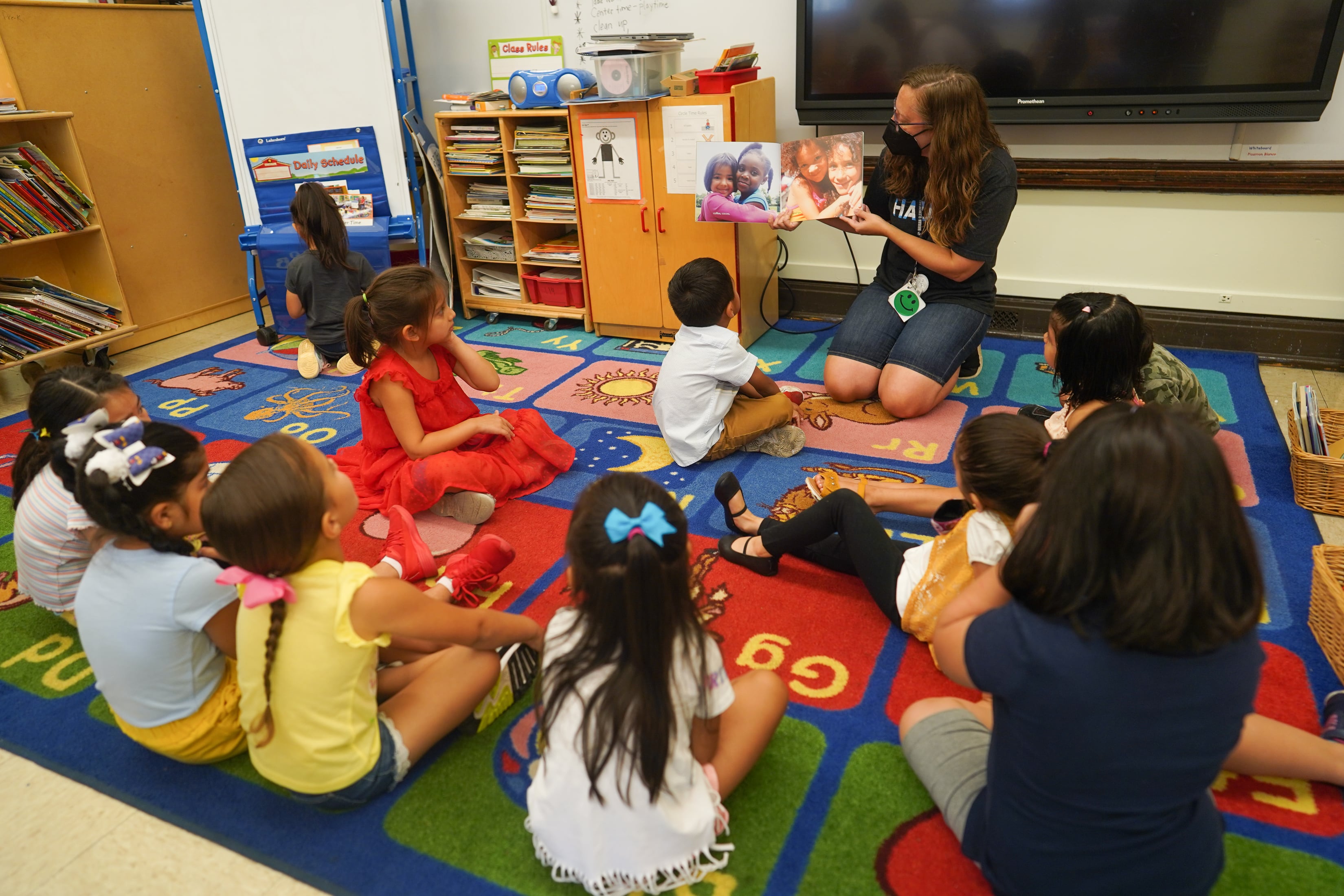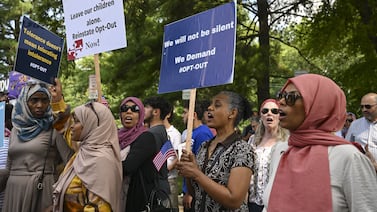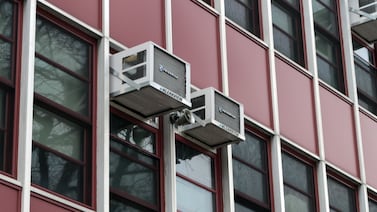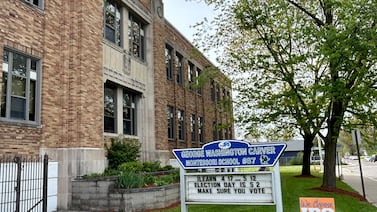Sign up for Chalkbeat’s free monthly newsletter The Starting Line to get curated news about early childhood education delivered to your inbox.
More early childhood workers in Illinois are pursuing higher education degrees — moving closer toward a goal set out by state officials two years ago, a new report found.
The Illinois Early Childhood Access Consortium for Equity’s first annual report, released on Wednesday, found that since 2020 about 500 additional students who already work in early childhood education have enrolled in bachelor’s degree and applied associate programs, an increase of about 18%. The report also found an increase in the number of Latino and African American child care professionals who enrolled in college since 2020.
Ireta Gasner, vice president of Illinois Policy at Start Early, a nonprofit organization based in Chicago that advocates for early childhood education, said it is important for child care professionals to get degrees to understand child development and to get higher wages.
“A lot of folks want to go back to school, but it’s difficult to do so because there’s a lot of systemic barriers between two-year and four-year schools,” said Gasner. “There is a lack of financial support that fits the needs of adult students like paying for transportation, child care, tuition, and books.”
A March 2020 report from Illinois Network of Child Care Resource and Referral Agencies said “an estimated 28,000 early childhood education teachers and assistants would benefit from an opportunity to seek postsecondary credentials.”
The Illinois legislature passed a law in 2021 creating the consortium to pressure public universities and community colleges to create faster pathways for current child care professionals to earn college degrees. According to the report, over $200 million in funding for the consortium comes from the Illinois Department of Human Services’ federal COVID relief funds.
In order for the consortium to reach its goal of enrolling almost 5,000 members in higher education programs, it will need to complete this task by September 2024 when emergency funding expires.
Christi Chadwick, ECACE co-project director, said that when the legislation was passed in 2021, the consortium knew some funding for the work would expire in three years, so the group’s focus has been on building infrastructure to make sure that students have access to pathways in institutions of higher education.
“A lot of work has been happening in institutions around program redesign. So that pathways are smooth at two-year institutions or four-year institutions and between the two, and also working to put systems in place within institutions to better support the workforce,” said Chadwick.
For years, child care professionals and advocates have raised alarms about low wages and note that early childhood educators often have to work multiple jobs to make a living wage
A report from the Chicago Early Childhood Workforce Partnership Employer Council last fall found that Chicago’s early childhood educators are paid $18,000 less on average than elementary school teachers in Chicago Public Schools, despite having the same degrees. The gap is even wider for early childhood educators of color compared to white educators.
In addition to the consortium, Gov. J.B. Pritzker’s Smart Start Illinois initiative includes $130 million for an effort called the Childcare Workforce Compensation Contracts, which is aimed at increasing the salaries of child care workers and bringing more educators into the field.
According to a press release from the state on Wednesday, state agencies and universities who are a part of the consortium have worked on several initiatives to ensure that finances are not a barrier for current early childhood workers, the majority of whom are women and people of color.
The Illinois Board of Higher Education, the Illinois Community College Board, and the Illinois Student Assistance Commission launched the ECACE Scholarship in 2021. In the first year of the scholarship, over 400 students were awarded $5.7 million. In the first six months of the second year of the program, $7 million was awarded to over 1,000 students.
Colleges and universities that are a part of the consortium have created their own initiatives to tackle financial barriers preventing workers going to school and to support them once they are on campus. According to the press release, some universities have given students laptops, academic tutoring, and test preparation to help them pass early childhood education licensing exams.
The report from the consortium shows a lot of promise, but figuring out how to expand the program will depend on whether it is sustainable after federal coronavirus relief funds expire in 2024, said Gasner.
“Once people feel like this is going to be here in four years or in two years, they’re going to be more likely to continue to engage,” said Gasner. “We’re going to be able to talk more about whether the scholarship needs to be further further tweaked. But all of that growth and progress is going to rely on sustainability.”
Correction: Aug. 23, 2023: A previous version of this story said $7 million had been awarded during the second year of the ECACE Scholarship. The story has been updated to reflect that $7 million was awarded during the first six months of the second year of the program.
Samantha Smylie is the state education reporter for Chalkbeat Chicago, covering school districts across the state, legislation, special education, and the state board of education. Contact Samantha at ssmylie@chalkbeat.org.





